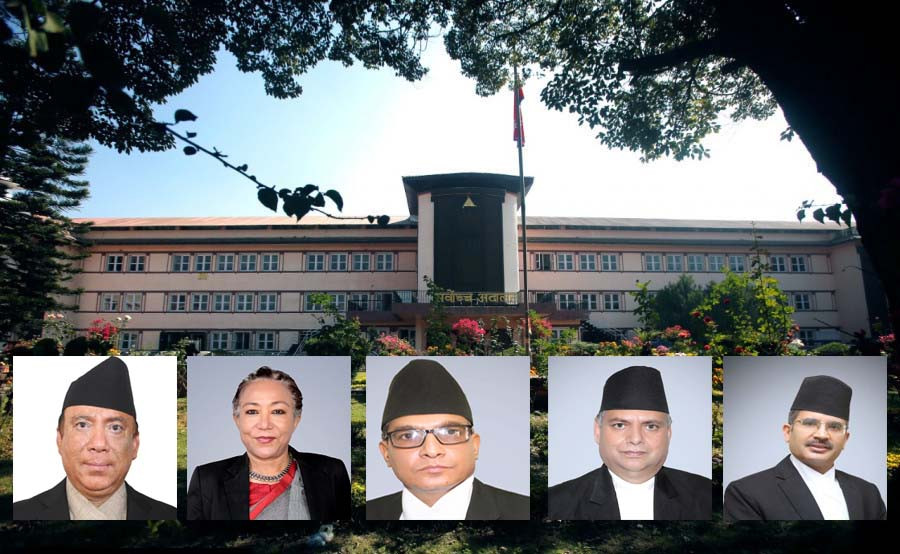National
Retired judges’ forum calls out Constitutional Bench for its recent decision
Says the bench’s decision to endorse former Oli administration’s controversial appointments in constitutional bodies has undermined people’s faith in judiciary.
Post Report
The Former Judges Forum Nepal has joined the league to criticise the Constitutional Bench’s recent decision to uphold appointments in the constitutional bodies, stating that it has cast a political shadow over the judiciary and undermined its independence.
The umbrella body of the retired judges has said the judiciary had failed to safeguard its autonomy. “The general perception is that the June 2nd verdict is the testimony that the Supreme Court has failed to protect its independence and contributed to the politicisation of the judiciary,” the statement read.
The forum has taken particular exception to the ruling to validate the then KP Sharma Oli government’s decision to reduce the quorum requirements through an ordinance, calling it a direct assault on the core principle of the constitution and democratic governance.
The Oli administration made a controversial amendment to the Constitutional Council (functions, duties, and procedures) Act, allowing three of the six-member of the council to nominate candidates for appointment to constitutional commissions.
The council, on December 15, 2020, recommended 38 candidates for various commissions. Of them, 32 were appointed on February 3 of the following year. Likewise, 20 others recommended on May 4, 2o21, were appointed on June 24 that year.
The May 4 recommendations came just before then prime minister Oli dissolved the House of Representatives.
The appointments were made citing a provision in the parliamentary regulations that says appointments would not be obstructed if a parliamentary hearing cannot be held within 45 days of the recommendation.
Fifteen petitions were filed challenging the ordinance, recommendations, and appointments. The appointments were upheld by a majority in the five-member bench, saying the executive has the authority to issue ordinances when the parliament is not in session.
“Such decisions incite executives to tread an autocratic path while also demeaning the principle of constitutional supremacy,” reads the forum’s statement.
The forum has objected to the interpretation that Article 292(1) itself imposes prohibitions on hearings, and to the elevation of the House of Representatives Rules to the same status as the constitution. Describing such interpretations as flawed and unconstitutional, the forum stressed that the constitution is the supreme law, and any rule or procedure that contradicts its provisions must be invalidated.
In their statement, the former judges warned that these developments threaten judicial independence and represent a broader erosion of constitutional norms, democratic accountability, and the rule of law. They called on the state organs to act responsibly and uphold the constitutional order.
Last week's verdict, whose final text is yet to be released, has been criticised by the constitutional, legal and political experts, claiming it to be very shallow and accusing the constitutional bench of having failed to perform its job. They argue that it has failed to answer what the prerequisite is for issuing an ordinance. Can an ordinance amend or replace an existing Act (law) by fully reversing its spirit?, they question. Whether ordinances can be issued repeatedly on the same subject was another question the court was supposed to answer, but hasn’t.
“The constitutional bench that upholds a higher status has failed to answer to the concerns of the petitioners,” the forum’s statement further reads. “The judiciary should be concerned that such decisions might erode the public faith towards it.”




 10.12°C Kathmandu
10.12°C Kathmandu














